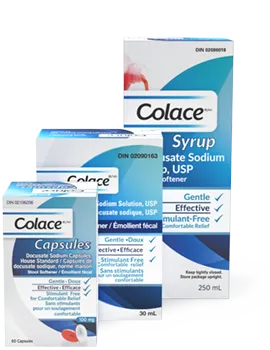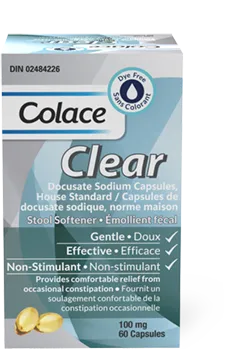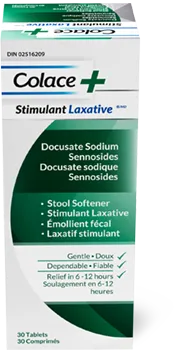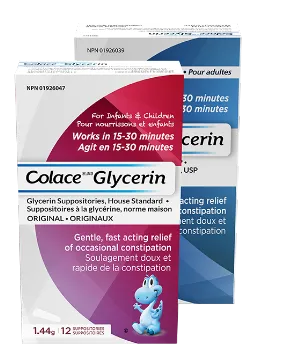What is Constipation?
Constipation is a common condition that can affect individuals of all age groups. It may manifest as either infrequent bowel movements or a difficulty to fully evacuate your bowels.
The severity of constipation differs among individuals. Some may have it briefly, but for others, it can turn into a long-lasting (chronic) problem.

Causes of Constipation
The causes of constipation can vary widely, and here is a simple list of common factors.
-
Changes in daily routines, especially during travel
-
Insufficient physical activity
-
Stress
-
Pregnancy or recent childbirth
-
Ignoring the urge to have a bowel movement
-
Certain medications
-
A diet with insufficient fibre
-
Specific medical conditions
-
Dehydration due to inadequate fluid intake

Signs and Symptoms

Infrequent or Irregular Bowel Movement
Constipated individuals typically have fewer than three bowel movements per week.

Straining
People with constipation often need to exert extra effort or strain to pass stool, which can be uncomfortable or painful.

Hard and Dry Stools
Constipated stool is often hard, dry, and may appear lumpy, making it difficult to pass.

Feeling of Incomplete Evacuation
Even after a bowel movement, constipated individuals may still feel like they haven’t fully emptied their bowels.

Abdominal Discomfort
Constipation can lead to symptoms like bloating, abdominal pain, or a general sense of discomfort in the abdominal area.
Find Relief in Colace® Products

Colace® Stool Softener
Stool softener for alleviation of common symptoms of occasional constipation. Available in drops, syrup, and capsules.



